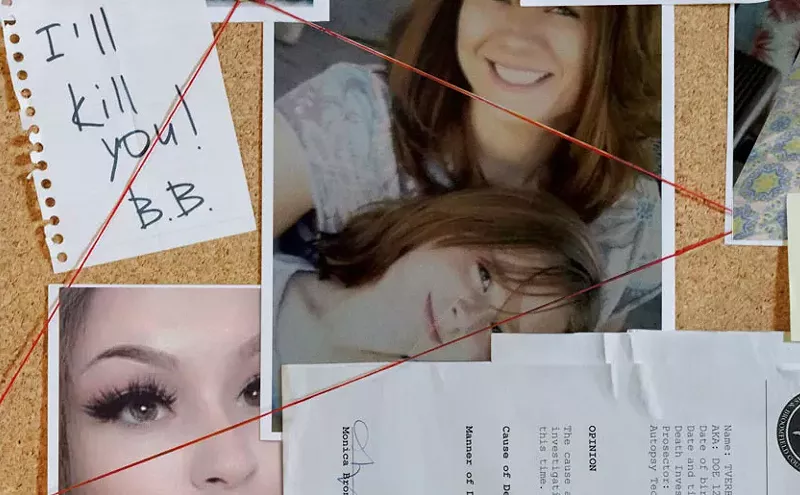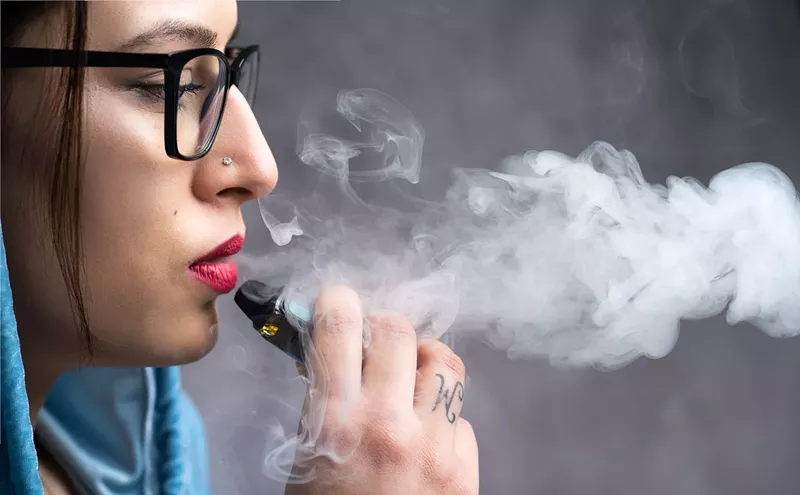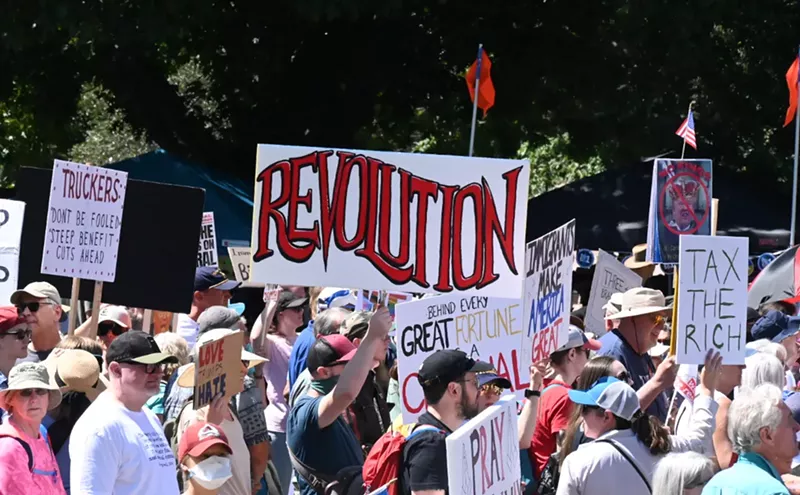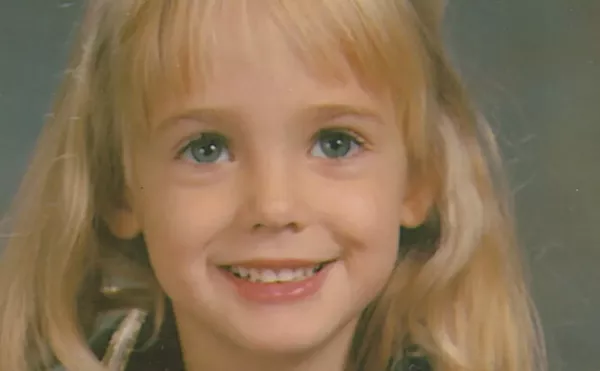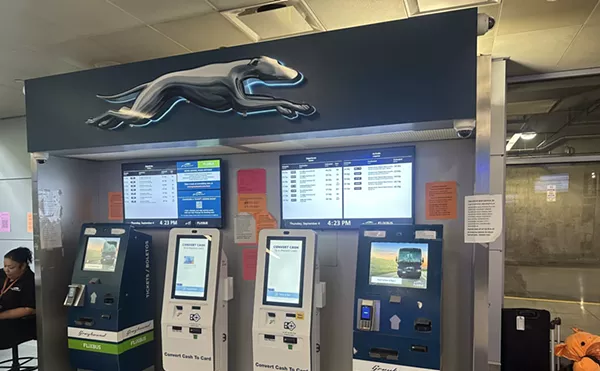See also: Alex Landau was pulled over for making an illegal left turn and ended up beaten bloody
As we recounted in "Black and Blue," our January 18, 2011 cover story, Landau was stopped by Denver Police Department officers after he made an illegal left turn in north Capitol Hill -- an encounter that left him bleeding by the curb "in acute distress," the paramedics reported when they arrived.
It took 45 stitches to close the cuts on his face alone -- and Landau, who had never been in trouble with the cops and whose adopted family includes several with law-enforcement backgrounds -- asked the paramedics to take a photo of his injuries before he was stitched up.Those photographs became compelling exhibits when Landau sued the City of Denver two years after the beating. And soon after our story appeared, he was awarded a $795,000 settlement. Two of the police officers involved have since been fired from the DPD for excessive use of force -- in other incidents.
StoryCorps taped the piece on Landau and his mother, Patsy Hathaway, in Aurora a couple of months ago. "As time went by, we weren't sure they were going to use it," Landau says. But then early last week, he got a call from NPR staffers doing some fact-checking. The situation in Ferguson had moved this particular StoryCorps piece to the head of the line, Landau says, because it was "another example of a militarized police state exercising racial profiling."
Landau was a studen at Metro when the cops pulled him over more than five years ago. He's working now -- in security! -- and has a couple of semesters to go at the University of Colorado Denver, where he's studying communications and social justice. He's still doing poetry, still doing music -- and he's a father now, as of July 29. He wants to make sure the world is a safer place for his child.
After Landau sued the city, he became very involved in social issues, working with the the Colorado Progressive Coalition to establish a racial-profiling hotline. And he continues his efforts to stop abusive cops today. "Nobody has gotten up and acknowledged these kind of behaviors for what they are," he says. He's pushing for more transparency, and is particularly interested in requiring body cameras for officers, a move that DPD Chief Robert White backs.
"I support that," Landau says. "We just have a long way to go. They have to acknowledge accountability."
Continue for the StoryCorps piece on Alex Landau. You can listen to the StoryCorps piece here; the transcript follows:Alex Landau (AL): I was about 4 years old and a little girl on the playground came up to me and said, "Not all white kids like to play with black kids." You grabbed her and told her, "You don't talk to my son like that, you need to leave."The StoryCorps piece -- and the similarities between the Michael Brown shooting and Landau's beating -- have renewed interest in his saga. Landau reports that CBS is coming to town to film him this week, and Colorado Public Radio may follow up on the NPR story.Patsy Hathaway (PH): Yeah, the one that hurt me the most, you were 8 years old and outside on a really very hot day, covered from head-to-toe with a long-sleeved shirt. And I didn't understand why you were dressed like that and you said, "Because you didn't want your skin to get any darker."
AL: We never talked about race growing up, I just don't think that was ever a conversation.
PH: I thought that love would conquer all and skin color really didn't matter. I had to learn the really hard way when they almost killed you.
AL: Yeah. I was 19 years old. I had picked up a friend and I noticed that we had red and blue lights behind us--we were being pulled over. The officer explained I had made an illegal left turn, and to step out of the car.
So I get out of the car first, he pats me down. And then he goes around to the passenger side and pulls my friend Addison out of the car.
PH: Addison is white.
AL: Yeah, Addison is white, and he had some weed in his coat pocket. So he gets placed in handcuffs. I figure that everything is okay, I'm not in handcuffs I've already been patted down, plus there's three officers on the scene. And I had never had a negative interaction with police in my life.
So I ask them, "Can I please see a warrant before you continue the search?" And they grab me and began to hit me in the face. I could hear Addison in the background yelling, "Stop. Leave him alone." I was hit several times, and I remember gasping for air and spitting and blood flying across the grass.
And then I hear an officer shout out, "He's reaching for her gun." I immediately started yelling, "No, I"m not. I'm not reaching for anything."
And, I remember an officer say, "If he doesn't calm down, we're going to have to shoot him." I could feel the gun pressed against my head, and I expected to be shot. And at that point I lost consciousness.
I woke up to a multitude of officers just standing around me laughing. One officer was like, "Where's that warrant now you fucking nigger." And it took 45 stitches to close up the lacerations in my face alone.
How did it feel when you got the call that I was in jail?
PH: I was in the middle of teaching a second grade class. All she said was, "You'd better come see about your son." She didn't say anything about what kind of shape you were in.
AL: What about when you finally saw me?
PH: All I remember is involuntarily screaming.
AL: That was the first time I had cried the entire time I had been in there. And it wasn't my injuries that hurt. It was just seeing how it devastated you.
PH: My whole world view changed that night.
AL: Yeah. For me it was the point of awakening to how the rest of the world is going to look at you. I was just another black face in the streets and I was almost another dead black male.
Have a tip? Send it to [email protected].




